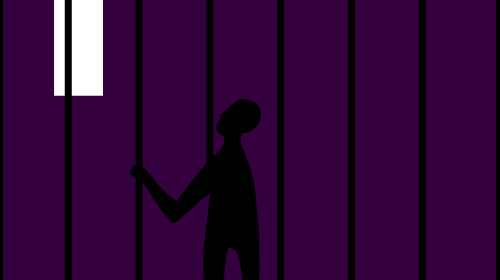IndieVoices Podcast: Author Tells of the Daily Lives and Struggles of Exonerees
Alison Flowers first caught my attention a year ago, when I reviewed her book, Exoneree Diaries: The Fight for Innocence, Independence, and Identity, published by Haymarket Books. What struck me about the book was its matter-of-fact style as it described the daily lives of those who have been released from prison after having been wrongly convicted.

I ran into Alison at last year’s Book Expo America in Chicago, where she talked to me about why she wrote the book.
“You know, it’s wonderful that we’ve had decades and decades of overturning cases and freeing the innocent but now there’s this whole lack of infrastructure for how to deal with these people who seriously need aftercare,” she said. “So I made it a point to meet some exonerees. I started interviewing them and then meeting with them regularly for about three years.”
When I decided to make criminal justice reform a theme for a podcast, I had to have Alison on to give us an update. Alison is an investigative journalist who focuses on social justice and criminal justice. Listen to the entire interview here, or read some of the highlights below.
Interview Highlights
On the common theme connecting all the exonerees she interviewed.

Alison Flowers: 'A wrongful conviction can and does happen to anybody.'
That common theme was just one of struggle for connection—even connecting with themselves and understanding who they were outside of prison. But, more importantly, struggling to connect to the world outside of them, struggling to connect to their family members, and often their children. We hear a lot about these Hollywood ending type stories, being released from prison as being this happy ending … but it’s just not the end of the story. It’s just the beginning of another set of struggles.
On the challenges facing exonerees on the outside.
When you walk out of prison as an exoneree, you don’t receive any compensation immediately, and perhaps not ever. Not a dime. Not even a bus pass. And, on top of all of those challenges, your record is not automatically expunged. And there may not be a mechanism to expunge it in your state or in your situation. That means it’s very hard to find work. So, to not be able to work on the outside because of your criminal record, which is not even an actual criminal record, could be extremely disheartening.
On her hype- and drama-free method of storytelling.
I really wanted to strip the typical narrative of it—saccharine features—because it’s too easy to paint an exoneree as a hero. Certainly they’re underdogs worthy of our esteem, they could be very inspiring on a human level, overcoming tragedy, personal loss. But, in the end, they’re just like you and me in the sense that a wrongful conviction can and does happen to anybody.
But I focused on the mundane. My favorite part of a chapter is when I describe an exoneree doing laundry because that was such a defining moment for him, to be able to pay to do his own laundry, walk down the block and put in the soap himself and separate things the way he wanted to. The privilege of washing your own clothes. I really wanted to get it down to the daily, basic, essence so we all can connect.
You can also subscribe to all our IndieVoices podcast episodes on iTunes, Soundcloud, and Google Play.

Howard Lovy is executive editor at Foreword Reviews. You can follow him on Twitter @Howard_Lovy
Howard Lovy
